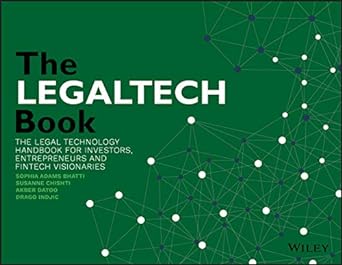Question
Hong, Polanin, and Pigott (2012) define financial self-sufficiency as a process, rather than an outcome, which starts from overcoming unrealistic financial goals, building inner strength
Hong, Polanin, and Pigott (2012) define financial self-sufficiency as "a process, rather than an outcome, which starts from overcoming unrealistic financial goals, building inner strength and future outlook, acquiring skills and resources, and then moving forward toward realistic financial goals. The purpose of this assignment is to encourage a thoughtful outlook in building a solid foundation for current or future economic self-sufficiency.
In order to build a solid foundation to help achieve current or future self- sufficiency, a few factors need to be taken into consideration in order to help realize such a goal. This list is not exhaustive and you can include other factors relevant to you that are not included here. You do not have to provide actual monetary amounts, but do include a percentage to help you gauge the impact to your finances. In 700 total words, answer the following.
- First, what factors in your own life would you use to measure your level of economic self-sufficiency pick either now or in the future? What does economic self-sufficiency look like to you?
- Second, discuss your major what is it, why did you decide on this major, do you plan on obtaining full-time employment after graduation because of this major or is this major a stepping stone to pursuing a higher degree, such as a masters degree or doctorate? Remember that pursuing a bachelors degree or a higher terminal degree is an investment in yourself (and maybe your family). Research current jobs that you are interested in applying to when you have completed all of your education. How much is the starting salary and do you currently (or will soon enough) have the majority of requirements to apply for that position?
- Third, how are you currently paying for your education through loans, scholarships, grants, assistantships, family/work/military financial support? What about for any future degrees? What college debt do you anticipate to have after you have completed all of your education?
- Fourth, are you currently employed and gain monetary compensation? If so, where does that money go housing, food, transportation, debt, etc.? Are you currently saving money or do you feel you live paycheck to paycheck? Are you saving any money for retirement? What age do you think is a good time to save for retirement? What work do you do, but do not get paid for?
- Fifth, re-read all your answers. Discuss any barriers you have or might experience in the future to achieve economic self-sufficiency. What steps can you take now (or find support in others) to help you reach economic self-sufficiency?
Step by Step Solution
There are 3 Steps involved in it
Step: 1

Get Instant Access to Expert-Tailored Solutions
See step-by-step solutions with expert insights and AI powered tools for academic success
Step: 2

Step: 3

Ace Your Homework with AI
Get the answers you need in no time with our AI-driven, step-by-step assistance
Get Started


